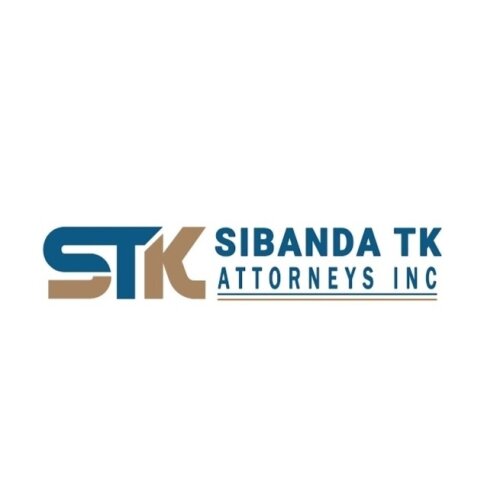Best Child Abuse Lawyers in Kwamhlanga
Share your needs with us, get contacted by law firms.
Free. Takes 2 min.
Free Guide to Hiring a Family Lawyer
List of the best lawyers in Kwamhlanga, South Africa
About Child Abuse Law in Kwamhlanga, South Africa
Child abuse is a serious issue that affects communities across South Africa, including Kwamhlanga in the Mpumalanga Province. The term “child abuse” refers to any physical, emotional, or sexual mistreatment of a child, as well as neglect, exploitation, or abandonment. In South Africa, the law provides strict measures to prevent abuse, protect children, and punish offenders. The welfare and safety of minors are given high priority under national as well as provincial laws, and a range of services exist to respond to such cases.
Why You May Need a Lawyer
There are several situations in which individuals may require legal advice or representation related to child abuse in Kwamhlanga:
- If you suspect a child is being abused or neglected and want to know the correct processes to report it.
- If you or your child have been wrongly accused of child abuse, and you need to defend your rights in court or in front of authorities.
- If you are a parent, guardian, or caregiver facing allegations or investigations by social workers or police.
- If you need assistance navigating the procedures of the Department of Social Development or the South African Police Service regarding child protection.
- If you need to obtain a protection order or are seeking to remove an abusive person from the child's environment.
Legal matters regarding child abuse are often urgent and sensitive, requiring experienced legal advice to ensure the safety of the child and the fair treatment of all parties involved.
Local Laws Overview
In South Africa, child abuse is primarily governed by the Children’s Act 38 of 2005, which outlines the rights of children and the responsibilities of adults and authorities. The Criminal Law (Sexual Offences and Related Matters) Amendment Act is also key if sexual abuse is suspected. The main points include:
- Any abuse or suspected abuse must be reported by professionals such as teachers, doctors, and social workers, and members of the public are encouraged to do the same.
- Child abuse is a criminal offence and carries severe penalties, including imprisonment and removal from positions of responsibility.
- The Department of Social Development, the police, and the courts have the authority to intervene if a child is at risk.
- Child protection services act swiftly to arrange safe alternative care where required, and the child's best interests are always the primary consideration in any legal action.
- Victims and their families have a right to support, counselling, and legal representation during proceedings.
In Kwamhlanga, these national laws are enforced locally by regional branches of the South African Police Service, local magistrate courts, and social services.
Frequently Asked Questions
What counts as child abuse in Kwamhlanga, South Africa?
Child abuse includes physical harm, emotional harm, sexual abuse, neglect, abandonment, or any form of exploitation that harms a child’s wellbeing.
How do I report suspected child abuse?
You can report to the South African Police Service, the local Department of Social Development office, child welfare organizations, or directly at your nearest police station or magistrate's court.
Can I report abuse anonymously?
Yes, it’s possible to report anonymously, although providing your details can help authorities with follow-up and investigation.
What happens after abuse is reported?
Authorities such as social workers and police will investigate, may remove the child to a place of safety if needed, and could start legal proceedings against the alleged abuser.
What if someone is falsely accused of child abuse?
It’s important to seek legal representation. The accused can defend themselves in court, and the legal system will carefully assess all evidence before making a decision.
Who is mandated to report child abuse?
Professionals like teachers, doctors, and social workers are legally required to report suspected abuse. Members of the public are encouraged to report, but are not legally mandated.
Are there support services for child abuse victims in Kwamhlanga?
Yes, victims can access counselling and legal support through local government services, NGOs like Childline, and health facilities.
Can the identity of a child abuse victim be made public?
No, the law protects the privacy of minors involved in abuse cases. Their identities and case details are kept confidential.
How long does an investigation or court case take?
This depends on the complexity of the case. Urgent safety measures can be taken immediately, but court proceedings can take several weeks or months.
What penalties do child abusers face?
Penalties range from fines and correctional supervision to lengthy imprisonment, depending on the nature and severity of the abuse.
Additional Resources
If you need help or more information, here are some key resources in Kwamhlanga and South Africa:
- South African Police Service (SAPS): For immediate reporting of abuse or protection.
- Department of Social Development (DSD): Offers child protection services and intervention.
- Thuthuzela Care Centres: Provides support for victims of sexual abuse, including health and legal assistance.
- Childline South Africa: Offers a toll-free helpline and support for abused children.
- Child Welfare South Africa: Provides advocacy, protection, and placement services for at-risk children.
Next Steps
If you are dealing with a child abuse situation in Kwamhlanga:
- Ensure the safety of the child first. If the child is in immediate danger, contact the police or an emergency helpline right away.
- Gather any available evidence or information relevant to the case-such as photos, reports, or witness statements-to assist authorities.
- Contact a qualified lawyer with experience in family and child protection law to understand your rights and obligations.
- Approach the local Department of Social Development or an NGO for assistance with social and legal support services.
- Keep records of all communication and official responses received during the process.
Prompt legal advice and action are critical in child abuse cases to ensure the child’s best interests are protected and to comply with the legal requirements in South Africa.
Lawzana helps you find the best lawyers and law firms in Kwamhlanga through a curated and pre-screened list of qualified legal professionals. Our platform offers rankings and detailed profiles of attorneys and law firms, allowing you to compare based on practice areas, including Child Abuse, experience, and client feedback.
Each profile includes a description of the firm's areas of practice, client reviews, team members and partners, year of establishment, spoken languages, office locations, contact information, social media presence, and any published articles or resources. Most firms on our platform speak English and are experienced in both local and international legal matters.
Get a quote from top-rated law firms in Kwamhlanga, South Africa — quickly, securely, and without unnecessary hassle.
Disclaimer:
The information provided on this page is for general informational purposes only and does not constitute legal advice. While we strive to ensure the accuracy and relevance of the content, legal information may change over time, and interpretations of the law can vary. You should always consult with a qualified legal professional for advice specific to your situation.
We disclaim all liability for actions taken or not taken based on the content of this page. If you believe any information is incorrect or outdated, please contact us, and we will review and update it where appropriate.









